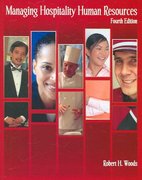Question
1) This week you read a work product about developing a logic model, written by the W.K. Kellogg Foundation. What did you think about this
1) This week you read a work product about developing a logic model, written by the W.K. Kellogg Foundation. What did you think about this "Guide"? What main takeaways do you have after reviewing it? What are your remaining questions?
2) This week you read an article by Renger and Titcomb about three ways of teaching about logic models. What dd you think about their approach, and what questions do you have?
Was it helpful to review this article along with the W.K. Kellogg Foundation Guide for developing logic models, or did they not work well together for one week of reading?
3) Last week I asked you to think of some examples of input, output and outcome measures for PAD 314. This week I want you to think about what a logic model would look like for this course. How would you set up the logic model? What would some of the entries be in the primary categories (not the measures, but the concepts)?
4) Surf the web and identify an example of a real-world logic model you think was well done. Post the link here and tell us what you think made this example successful.
5) Surf the web and identify an example of a real-world logic model you think was not well done. Post the link here and tell us what you think could have been done better in your example.
6) What did you find to be the main lessons from the readings, lecture notes, and discussion board this week?
Step by Step Solution
There are 3 Steps involved in it
Step: 1

Get Instant Access to Expert-Tailored Solutions
See step-by-step solutions with expert insights and AI powered tools for academic success
Step: 2

Step: 3

Ace Your Homework with AI
Get the answers you need in no time with our AI-driven, step-by-step assistance
Get Started


